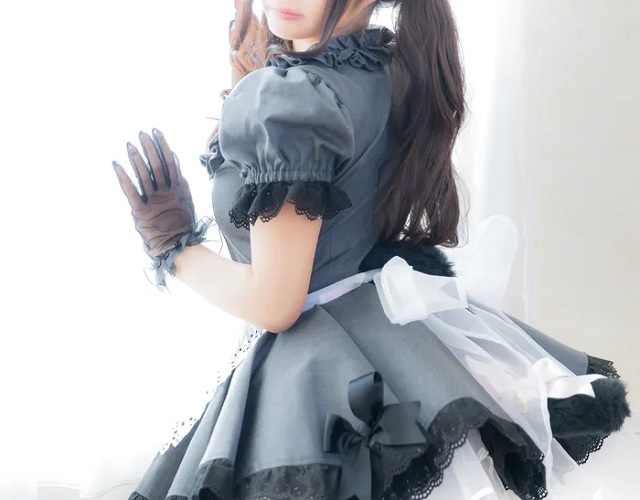
Tokyo police bust five maid cafes for violation of Adult Entertainment Business Regulation Law, and they’re looking for more.
In recent years, Tokyo’s Akihabara neighborhood has become almost as famous for its maid cafes as it is for its anime and video game specialty shops. Ordinarily, you don’t even have to set foot inside a cafe to feel their presence, as side streets often have maids out on the pavement passing out flyers and beckoning passersby to come to their establishments.
However, over the past few days locals have been reporting seeing notably fewer “customer pullers” (as such on-the-street staff are called), and the change follows a recent police crackdown on illegally run maid cafes.
▼ Streets without maids in Akihabara
https://twitter.com/thx1138furuhon/status/1397100818541645830Last Thursday, the Tokyo Metropolitan Police arrested five female Akihabara maid cafe managers (between the ages of 20 and 24) and one 47-year-old male maid cafe owner over violations to the Adult Entertainment Business Regulation Law. Essentially, in Japan there are different regulations you have to follow depending on whether you’re running an ordinary restaurant/bar (called an inshokuten), or a “social restaurant/bar” (shakou inshokuten), where the wait staff also socializes with the customers and keeps them entertained. According to the Adult Entertainment Business Regulation Law, social restaurants are required to close at 1 a.m. Ordinary restaurants, though, are allowed to stay open as long as they want, since their primary business is supposed to be providing food, and people who work night shifts or other irregular schedules might need nourishment outside the standard breakfast/lunch/dinner times.
So all else equal, it’s better to be classified as a normal restaurant, since you can stay open, and earning, past one o’clock. However, investigators judged that five Akihabara maid cafes which claimed to be regular restaurants were, in fact, social restaurants, resulting in the six arrests of the managers and owner.
Of course, one could argue that all restaurants that employ friendly, chatty, or even just polite wait staff have a social element to the services they’re providing. However, there’s a difference between service with a smile and the smile being the service itself. One of the cafes connected to the arrests, for example, was found to be charging customers as much as 7,000 yen (US$67) for a bottle of cola that would cost only about 200 yen in a convenience store, but with a promise that a maid would sit and talk with them until they’d finished drinking the whole thing.
▼ Another maid-free shot of what’s usually Akihabara’s most maid-dense street.
今日の昼間の秋葉原某所。普段この角度で写真撮ったらメイド客引き10人は写るけど、一斉摘発の影響でスッカスカなのかな。違和感すごいね。 pic.twitter.com/1PaQDtaXpB
— あんのうん (@specter_fun) May 20, 2021
Last week’s six arrests come after arrests at four other maid cafes in April for similar violations, and investigators say that such conduct remains rampant in the neighborhood.
Source: Yahoo! Japan News/Mainichi Shimbun via Jin
Top image: Pakutaso
● Want to hear about SoraNews24’s latest articles as soon as they’re published? Follow us on Facebook and Twitter!

 Missing the maid café? Virtual @Home Café lets you chat with cute virtual maids at home!
Missing the maid café? Virtual @Home Café lets you chat with cute virtual maids at home! School in Tokyo lets students study with cute maids as they learn programming skills
School in Tokyo lets students study with cute maids as they learn programming skills Sanro’s lazy egg Gudetama now has its own maid cafe in Tokyo’s Akihabara
Sanro’s lazy egg Gudetama now has its own maid cafe in Tokyo’s Akihabara Akihabara maid cafe finds novel way to stay on brand during coronavirus crisis【Video】
Akihabara maid cafe finds novel way to stay on brand during coronavirus crisis【Video】 Looking for a job in Japan? New “Sugoi Kawaii” maid cafe in Akihabara now hiring foreigners!
Looking for a job in Japan? New “Sugoi Kawaii” maid cafe in Akihabara now hiring foreigners! Japan’s new difficult-to-drink-from beer glass protects your liver, but it’s a brutal experience
Japan’s new difficult-to-drink-from beer glass protects your liver, but it’s a brutal experience How to order snacks on a Shinkansen bullet train in Japan
How to order snacks on a Shinkansen bullet train in Japan New samurai glasses are Japan’s latest weird must-have souvenir
New samurai glasses are Japan’s latest weird must-have souvenir “Deflowering” services for virgin women are now a thing in Japan, apparently
“Deflowering” services for virgin women are now a thing in Japan, apparently Doraemon found buried at sea as scene from 1993 anime becomes real life【Photos】
Doraemon found buried at sea as scene from 1993 anime becomes real life【Photos】 Burger King Japan suddenly adds Dr. Pepper and Dr. Pepper floats to its menu nationwide
Burger King Japan suddenly adds Dr. Pepper and Dr. Pepper floats to its menu nationwide Hello, cosmetics! Clinique teams up with Hello Kitty this summer for first-time collaboration
Hello, cosmetics! Clinique teams up with Hello Kitty this summer for first-time collaboration Princesses, fruits, and blacksmiths: Study reveals the 30 most unusual family names in Japan
Princesses, fruits, and blacksmiths: Study reveals the 30 most unusual family names in Japan High-fashion Totoro cuddle purse is like an elegant stroll in the forest【Photos】
High-fashion Totoro cuddle purse is like an elegant stroll in the forest【Photos】 Demon Slayer: Kimetsu no Yaiba gets new roller coaster attractions and food at Universal Studios Japan
Demon Slayer: Kimetsu no Yaiba gets new roller coaster attractions and food at Universal Studios Japan Nintendo history you can feel – Super NES, N64, and GameCube controllers become capsule toys
Nintendo history you can feel – Super NES, N64, and GameCube controllers become capsule toys “The most Delicious Cup Noodle in history” – Japan’s French Cup Noodle wins our heart【Taste test】
“The most Delicious Cup Noodle in history” – Japan’s French Cup Noodle wins our heart【Taste test】 Starbucks releases a cute Frappuccino and Unicorn Cake…but not in Japan
Starbucks releases a cute Frappuccino and Unicorn Cake…but not in Japan Kyoto Tower mascot termination reveals dark side behind cute Japanese characters
Kyoto Tower mascot termination reveals dark side behind cute Japanese characters McDonald’s Japan’s Soft Twist Tower: A phantom ice cream only sold at select branches
McDonald’s Japan’s Soft Twist Tower: A phantom ice cream only sold at select branches Yabai Ramen: What makes this Japanese ramen so dangerous?
Yabai Ramen: What makes this Japanese ramen so dangerous? Finally! Nintendo Japan expands Switch 8-bit controller sales to everybody, Online member or not
Finally! Nintendo Japan expands Switch 8-bit controller sales to everybody, Online member or not Japanese government wants to build luxury resorts in all national parks for foreign tourists
Japanese government wants to build luxury resorts in all national parks for foreign tourists To combat declining birth rate, Japan to begin offering “Breeding Visas” to foreigners
To combat declining birth rate, Japan to begin offering “Breeding Visas” to foreigners 10 things you should buy at 7-Eleven in Japan
10 things you should buy at 7-Eleven in Japan Studio Ghibli releases anime heroine cosplay dresses that are super comfy to wear
Studio Ghibli releases anime heroine cosplay dresses that are super comfy to wear Woman charged for driving suitcase without a license in Osaka
Woman charged for driving suitcase without a license in Osaka Studio Ghibli unveils My Neighbour Totoro miniature house model
Studio Ghibli unveils My Neighbour Totoro miniature house model Kyoto experiencing problems with foreign tourists not paying for bus fares, but not on purpose
Kyoto experiencing problems with foreign tourists not paying for bus fares, but not on purpose Fighting mild hunger with a Japanese soda that turns into jelly in the stomach【Taste test】
Fighting mild hunger with a Japanese soda that turns into jelly in the stomach【Taste test】 Studio Ghibli’s Howl’s Moving Castle tapestry unveiled in Japan for first time
Studio Ghibli’s Howl’s Moving Castle tapestry unveiled in Japan for first time McDonald’s new Happy Meals offer up cute and practical Sanrio lifestyle goods
McDonald’s new Happy Meals offer up cute and practical Sanrio lifestyle goods Sales of Japan’s most convenient train ticket/shopping payment cards suspended indefinitely
Sales of Japan’s most convenient train ticket/shopping payment cards suspended indefinitely Sold-out Studio Ghibli desktop humidifiers are back so Totoro can help you through the dry season
Sold-out Studio Ghibli desktop humidifiers are back so Totoro can help you through the dry season Japanese government to make first change to romanization spelling rules since the 1950s
Japanese government to make first change to romanization spelling rules since the 1950s Foreigner’s request for help in Tokyo makes us sad for the state of society
Foreigner’s request for help in Tokyo makes us sad for the state of society Ghibli founders Toshio Suzuki and Hayao Miyazaki contribute to Japanese whisky Totoro label design
Ghibli founders Toshio Suzuki and Hayao Miyazaki contribute to Japanese whisky Totoro label design Tokyo’s most famous Starbucks is closed
Tokyo’s most famous Starbucks is closed Tokyo specialized school’s new department will teach you to be an Akihabara professional
Tokyo specialized school’s new department will teach you to be an Akihabara professional Maid cafe manager who dated one of his maids says he was kidnapped and beaten by the yakuza
Maid cafe manager who dated one of his maids says he was kidnapped and beaten by the yakuza 27-year-old in Japan arrested for 3-D printed pistol, says he didn’t know it was illegal
27-year-old in Japan arrested for 3-D printed pistol, says he didn’t know it was illegal Maid cafe maid is in no mood to put up with complaints about guys who have girlfriends
Maid cafe maid is in no mood to put up with complaints about guys who have girlfriends Same-sex prostitution business technically legal in Japan, goes untouched by police
Same-sex prostitution business technically legal in Japan, goes untouched by police Despite having so many maids, officials say Akihabara really needs cleaning up
Despite having so many maids, officials say Akihabara really needs cleaning up Japanese revolving sushi restaurant chain stops revolving during coronavirus outbreak
Japanese revolving sushi restaurant chain stops revolving during coronavirus outbreak Gender-bending maid cafe in Taiwan, where guys dress up in maid outfits to serve you 【Pics】
Gender-bending maid cafe in Taiwan, where guys dress up in maid outfits to serve you 【Pics】 Five Chinese nationals arrested in Japan for translating manga, games for distribution
Five Chinese nationals arrested in Japan for translating manga, games for distribution What’s on the all-you-can-drink menu at Denny’s Japan? 【Family Restaurant Drink Bar Showdown】
What’s on the all-you-can-drink menu at Denny’s Japan? 【Family Restaurant Drink Bar Showdown】 Ramen and girls bar: Where you can talk to women who aren’t dressed like hosts or maids
Ramen and girls bar: Where you can talk to women who aren’t dressed like hosts or maids VR hostess cafe set to open in Japan to let you drink with cute anime girls【Video】
VR hostess cafe set to open in Japan to let you drink with cute anime girls【Video】 Absolutely nothing but knee-highs at Akihabara’s new sock emporium
Absolutely nothing but knee-highs at Akihabara’s new sock emporium Illegal mosaic-free porn business busted after earning over US$1M in revenues
Illegal mosaic-free porn business busted after earning over US$1M in revenues
Leave a Reply